NSF REU Site
Summer Research Experience for Undergraduates
REU Site: High Performance Computing (HPC) Tools, Techniques, and Research across the Physical Sciences

Summer Research Experience for Undergraduates (REU) Program
Temple University is seeking U.S. undergraduates from ALL STEM fields for a NSF (National Science Foundation) Summer 2025 REU (Research Experience for Undergraduates) program. Research projects involve cutting-edge work with interdisciplinary computational projects. Workshops and training on advanced techniques and supercomputer use are part of the program. This program will take place at Temple University’s main campus, located close to historic Center City Philadelphia, and run from May 27, 2025 – July 31, 2025.
REU (research experiences for undergraduates) students will share a variety of experiences beyond their research. Though their projects may be unique in STEM content, they will develop a common core of computing competencies, build a cluster, share the results of their work through a variety of activities, and engage in social/cohort-building activities.
Send Questions to REU Email Contact: [email protected]
Accommodations & Travel
Stipend:
Participants will receive a research work stipend ($7,000) and housing for this 10-week program.
Housing:
Housing will be provided by Temple University housing, and there is no cost to the participants. Detailed plan and location are subject to the summer renovation and improvement of Temple University housing, and will be announced once it has been finalized.
Travel:
Travel plan should be approved by the site directors in order to be reimbursed.

Eligibility & Application
All students from institutions with limited research opportunities are especially encouraged to apply.
REU participants are strongly encouraged to pursue publication of their summer research.
Eligibility:
- U.S. Citizen or Permanent Resident;
- Completed at least first year but have not yet graduated.
- Students from ALL STEM majors are encouraged to apply.
- Students will need to have completed at least one course in calculus and one computer science course, regardless of major.
- Introductory programming skills are required (Python, C, Java).
- Minimal GPA 3.0.
Exception can be made for strong candidates.
Application Document List:
- College Transcript(s) (official transcript is requested);
- Resume (2-page limit);
- One page personal statement to justify why you are a good match for the program;
- Two letters of recommendations, one must be from a faculty member.
Send recommendations to [email protected]
Application Instructions
Applications must be submitted through the NSF Education & Training Application (ETAP) system. (This system allows you to apply to multiple REU Sites across the country using a single application!)
The application consists of demographic and academic information, as well as a personal statement, an unofficial transcript, and contact information for one reference who can provide you with a reference letter. All parts of the application must be completed by the deadline to receive full consideration for selection.
Create your account with ETAP
You will need to first create an account and log in to the application system, ETAP, the National Science Foundation’s REU application site. You can create your account at etap.nsf.gov.
You may start inputting your registration and personal information now before you apply to our program. This information will automatically be included in your application to any REU program you apply to through ETAP.
Request Letters of Recommendation early in the process.
You should start as early as possible to get letters of recommendation. You need two letters of recommendation to have a complete application. We will not be able to review applications that do not have two letters of recommendation. NSF’s ETAP application software allows you to invite recommenders at any time.
The recommendations are a valuable part of your application to our program. We encourage you to invite your recommenders to share specific information on how you would be successful in an undergraduate research opportunity.
Make a habit of checking your application and the status of all requested recommendation letters. Follow up consistently with your recommenders to ensure that they have submitted their recommendation in time for the March 7, 2025 due date.
Please have the following items ready before you begin your application:
- Academic Transcripts: Unofficial transcripts are preferred, but both official and unofficial are accepted. Upload a scanned version of your transcripts within “Application Materials” on the ETAP site.
- Personal Statement: In 5000 characters or less, describe your interest in our research experience, what you hope to gain, and how the opportunity fits into your future academic and career plans. If you have any relevant research experience, please remember to include that as well. Keep in mind: ETAP allows you to create one personal statement that you can edit within each application. We strongly encourage you to personalize your statement within our application to reflect your interest in our program.
- Resume: If this is your first time creating a resume, we encourage you to search for examples of undergraduate resumes and follow a simple template (they can be found on Word or online). The easier the resume is to review, the more likely reviewers will catch important elements of your experience that couldn’t be included in the resume (e.g. length of time in a research lab or computational skills). Current work experience outside of research labs should be highlighted as well as volunteer services. Upload your resume under “Application Materials.”
Please submit your application once you have finalized your application materials, and have ensured that all the required application materials are attached to your application. You will not be able to update your application once it is submitted!
If you need to log back in to complete your application please visit: www.etap.nsf.gov
Please reach out to [email protected] with any issues or questions related to submitting your application.

Important Dates and Deadlines
Application Deadline: Thursday, March 7, 2025
Final Date for Selection or Declination: Monday, March 17, 2025
REU Participants Arrive on Campus: May 27, 2025
REU Program starts: May 27, 2025
RAPS Conference: TBD
Final Day of REU Program: July 31, 2025
Project Personnel

Klein, Michael L.
Principal Investigator (PI)
Laura H. Carnell Professor in the Depts. of Chemistry, Physics, and Biology & Fellow of the Royal Society
Computational Design of Advanced Materials
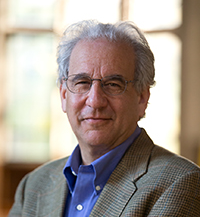
Levy, Ronald
Laura H. Carnell Professor in the Dept. of Chemistry
Fitness and Free Energy Landscapes of Proteins and Viruses

Matsika, Spiridoula
Professor in the Dept. of Chemistry
Development and Applications of Theoretical Methods to Student the Photophysics and Photochemistry of Biologically Important Systems and Electron Driven Chemistry

Kohlmeyer, Axel
Associate Dean for High- Performance Computing, CST
Software development and engineering for scientific software
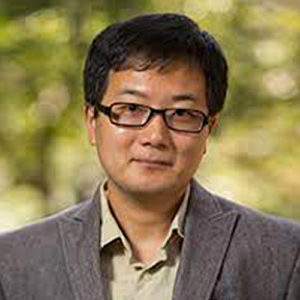
Wu, Xifan
Professor in the Dept. of Physics
Density functional theory simulations in the understanding of the basic molecular structure of liquid water and ice, as well as artificial ferroelectric or multiferroic nanomaterials
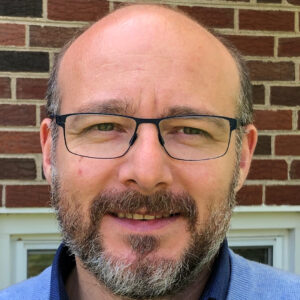
Carnevale, Vincenzo
Associate Professor & Director of Bioinfomatics in the Dept. of Biology
Statistical Physics and AI/ML methods to understand molecular evolution and emergent properties of soft and living matter.
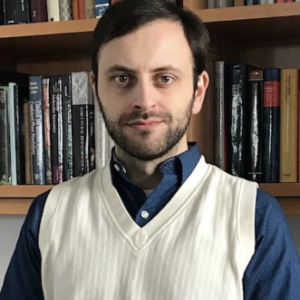
DelloStritto, Mark
Assistant Research Professor in the Dept. of Chemistry
Computational Design of Advanced Materials
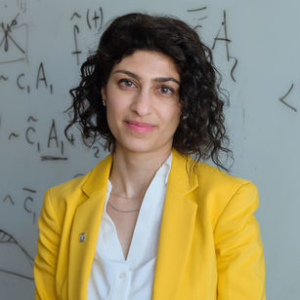
Constantinou, Martha
Associate Professor & Vice Chair in the Dept of Physics
Large Scale Simulations of Lattice
QCD to study the Structure of Hadrons
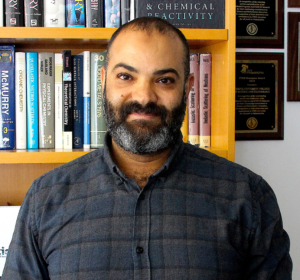
Abdelwaly, Ahmed
Program Instructor
Assistant Research Professor in the Dept. of Chemistry
Therapeutic Targets in the Treatment of Bronchial Asthma and Chronic Obstructive Pulmonary Disease (COPD)
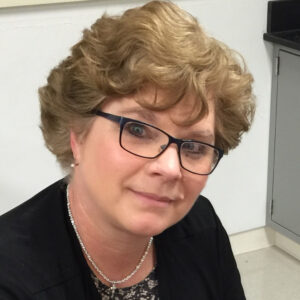
Susan Jansen Varnum
Co-Principal Investigator (Co-PI)
Senior Associate Dean of Undergraduate Affairs & Science Education, Professor in the Dept. of Chemistry
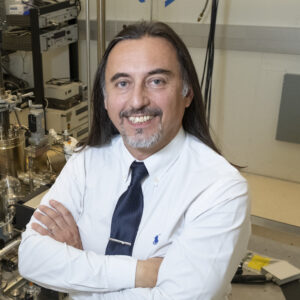
Mostafa, Miguel
Dean, College of Science and Technology
Professor of Physics
Possible Participant Outings
- Independence Hall & Park. Birthplace of the United States.
- The Franklin Institute. World-class science museum with diverse programming.
- Benjamin Franklin Museum. Home of a great American scientist and civil innovator. • Philadelphia Museum of Art. An impressive collection of artworks and exhibitions.
- Mütter Museum. History of medical advancement and biological oddities.
- Philadelphia Zoo. America’s _first zoo and home to over 1,300 animals.
- Science History Institute. History of science, with a focus on chemistry, chemical engineering, and the life sciences.
- National Constitution Center. Museum dedicated to the U.S. Constitution.
- The African American Museum in Philadelphia. A museum dedicated to the experiences of African Americans in the United States.

More Information
The proposed research experiences for undergraduates (REU) program focuses on introducing a unique cohort of students to undergraduate research in STEM fields. Temple University (TU) commits to providing students in the greater Philadelphia area with the tools that will allow them to contribute to advancing science and engineering in the US. Temple has transfer agreements with five local two-year educational institutions. These community colleges offer significant coursework in STEM areas. More broadly, our team will identify regional and national community colleges that offer STEM preparative coursework and focus recruitment efforts in those institutions, as students from two-year colleges often have limited undergraduate research experience when admitted to their four-year university. It is our experience that students rarely join research groups as they enter a bit late in the game. The program’s goal is to give the community college students, primarily underrepresented groups (women, minorities, and persons with disabilities), a summer research experience at TU, before the Fall semester, during which they would generally matriculate at a four- year college. As in the past, other students will be recruited from historically black colleges and universities (HBCUs) and small liberal arts colleges with limited research opportunities. This HPC- centric research experience will give students the necessary confidence and knowledge to allow them to participate in our already thriving undergraduate research program in the College of Science and Technology (CST) or at any four-year college.
- Engage 10 students annually from traditionally underrepresented colleges and universities with limited research opportunities and immerse students in ongoing research projects utilizing HPC tools, techniques, and research across the physical sciences;
- Cultivate talented students to effectively plan, conduct, and communicate scientific research with meaningful engaging projects, close and effective mentoring, weekly group meetings, mentor training, and public presentations;
- Improve educational channels to advanced HPC-related careers through student involvement in field trips, invited speakers, and additional public development activities.
The proposed project will immerse ten undergraduate students each summer in an exciting research experience focused on a broad range of HPC research across the physical sciences. The program will increase interest in HPC careers, as student research areas include protein folding, ferroelectric materials, therapeutic targets, Potts simulations. Targeted students are those that are underserved and underrepresented with a budding interest in graduate study, particularly those from two-year undergraduate institutions and HBCUs recruited locally, regionally, and nationally. Students will learn HPC techniques, collaborate to build a cluster, and complete independent research projects. We will integrate a strong focus on professional development, research ethics, and effective communication. These skills are highly valued and necessary for success in both academia and the workforce. The interdisciplinary program combines faculty from the Departments of Chemistry and Physics. REU students and peer mentors will collaborate on projects integrating computational and STEM content, connecting students at different academic levels. Program activities are designed to (i) delve into essential research questions, (ii) introduce students to the ethics and language of science, (iii) show how HPC computing is critical to advancing knowledge and integrating with laboratory explorations, (iv) give the students practice and confidence in presenting research.
The CST’s (College of Science and Technology) High-Performance Computing (HCP) team procures, deploys, and manages the central HPC resources on Campus. The HPC ecosystem includes three Linux clusters, serving different research areas: Materials Science, Molecular Mechanics, Particle Physics, Quantum Chemistry, Bioinformatics, and others. In addition, we provide services focused on Machine Learning and Artificial intelligence with two interactive shared resources. Our research focuses on designing and repurposing state-of-the-art tools that allow researchers to leverage the HPC techniques in their research, maintain and offer the best quality of services, and provide the tools needed to succeed and use our resources efficiently.



